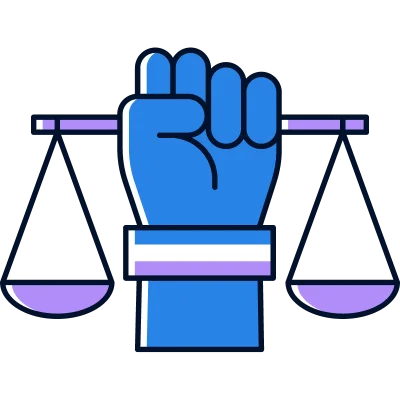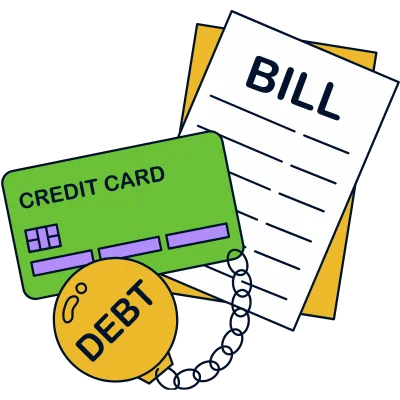Should the Gambling Age in the US Be Lowered to 18? | Pros and Cons

It’s been debated before, but it’s always worth revisiting: How is it that at 18 years old, you can enlist in the military, which is a huge responsibility, and vote, also a big milestone in America, but you can’t drink alcohol or gamble?
You can fight for your country (or be drafted) and cast a ballot that shapes our government and laws, but you can’t order an adult beverage or enter a casino? That doesn’t make a lot of sense! If it was consistent, like 21 years for all four activities, okay, we get that. Which brings us to our point—is it time for the U.S. to rethink the gambling age laws?
The debate over whether the gambling age should be lowered to 18 has been bandied about for years and continues to be relevant in today’s society. With changing attitudes towards youth responsibilities and rights, it’s a topic that pops up in talks around the dinner table, in Congress legislative halls, and even in the media. As society evolves, so do the perceptions of what exactly adulthood means and what privileges and responsibilities should come with it.
Currently, the legal gambling age in the U.S. varies depending on the type of gambling and the state. For casino gambling, the age is set at 21. Some states do allow those who are 18 to take part in a few kinds of gambling, like lotteries, bingo, and pari-mutuel betting. This mishmash of regulations shows the differing opinions around the country about when someone is considered mature enough to gamble responsibly.
We want to look at both the pros and cons of lowering the gambling age to 18 in the U.S.! If we weigh the potential benefits against the possible risks, it could become a little clearer whether a change like this would be a good thing or a mistake.
Historical Context
To get the full grasp of the ongoing debate about lowering the gambling age in the U.S., it’s important to look back at the history and evolution of gambling regulations. The age at which people are legally allowed to gamble has not always been set in stone and has changed in response to different social, economic, and even political influences over the years. By looking at the roots of these laws and comparing them to international standards, we can better understand the debate and why it’s relevant.

Evolution of Gambling Age Laws
The current gambling age regulations in the U.S. didn’t just happen overnight—the established age of 21 for most forms of gambling has been molded by historical events, societal attitudes, and legislative changes over time.
In the early days of America, gambling was generally frowned upon. The Continental Congress in 1774 urged colonists to avoid activities like horse racing and games of chance, demonstrating the moral and religious values of the time. But as the country grew, so did gambling, with riverboats along the Mississippi River becoming popular gambling hubs in the 19th century.
The 20th century brought about big changes, and Nevada legalized most forms of gambling in 1931 to boost its economy during the Great Depression, making it the gambling capital of the U.S. Over the years, other states followed suit, but with different regulations. By the 1970s, casino gambling grew beyond Nevada, notably in Atlantic City, New Jersey, and on Native American reservations following legislative changes.
The legal age for gambling became a focal point as gambling activities became more popular. In most states, the age of 21 was set, matching up with the legal drinking age due to concerns about young adults’ maturity and financial responsibility. This age was seen as a threshold where people were deemed “capable” of making sound decisions regarding gambling.
The main legislative milestones that shaped these laws include the following:
- The Federal Wire Act of 1961: Targeted at organized crime, it made interstate betting via wire communications illegal.
- The Indian Gaming Regulatory Act of 1988: Allowed Native American tribes to operate casinos under certain conditions.
- The Professional and Amateur Sports Protection Act of 1992 (overturned in 2018): Initially banned state-authorized sports betting, cementing Nevada’s distinct position in sports gambling.
These laws and others have contributed to the jumble of gambling regulations we see today across different states in the U.S.

Comparison with Other Countries
When we venture beyond the U.S. borders, the gambling age changes, showing a more nuanced perspective on this issue. Many countries set the legal gambling age at 18, meaning young adults can participate in various kinds of gambling (and drinking) three years before their American counterparts.
Countries like the United Kingdom, Germany, and Australia permit gambling at 18. In the UK, this includes sports betting, casino games, and purchasing lottery tickets. These countries have seen different outcomes of this approach—both positive and negative.
In Australia, the legal gambling age is also 18, and the country has a well-established gambling culture, including prevalent betting on sports and a large number of casinos. Yet it has also come with increased instances of gambling addiction, meaning there are ongoing debates about the appropriacy of the lower age.
Over in Portugal, they have more complex laws, with different age limits for different types of gambling activities—some casinos in Portugal allow tourists to gamble at 18, while local residents have to be 25. Weird, right? Are 18-year-old tourists somehow more responsible than 25-year-old’s? It seems random.
Countries with an 18-year limit argue that it lines up with other adult responsibilities and freedoms that come when you reach legal adulthood, showing the consistency in legal rights. But they also deal with the social and mental health impacts of early exposure to gambling, which we’ll get to later.
Pros of Lowering the Gambling Age to 18
The topic of whether to lower the gambling age in the U.S. from 21 to 18 is kinda contentious—there are solid arguments on both sides. As with other age-related laws, like those governing alcohol consumption and military service, the discussion tends to revolve around questions of maturity, responsibility, and economic impact. Below, we’ll take a look at the possible benefits of lowering the gambling age, concentrating on the economic advantages it could bring with the change.

More Revenue for the Gambling Industry
One of the most compelling arguments for lowering the gambling age is the boost it would bring to the gambling industry’s revenue stream. By allowing 18 to 20-year-olds to legally gamble, casinos and online gambling sites could tap into a new and sizable demographic. This age group, which is made up of millions of potential new customers, shows a big opportunity for growth in an industry that relies and thrives on a widespread customer base.
Casinos, particularly those in states where gambling is a major economic driver, could see a notable uptick in their patronage and profits. In states like Nevada, where gambling is a cornerstone of the economy, attracting younger adults could do wonders in rejuvenating the industry. Given the wildly competitive nature of the gambling market, casinos are always looking for ways to expand their customer base and business, and lowering the age limit would be a solid strategy.
Moreover, the online gambling sector, which has exploded in the past few years, would also benefit from an influx of younger players. Online platforms are super appealing to younger demographics who have been reared and have grown up with digital interactions—they prefer the convenience of gambling from their devices. This would mean ramped-up engagement and higher revenues for online gambling and sports betting sites.

Potential Economic Benefits for State and Local Governments
Lowering the gambling age could also translate into more tax revenues for state and local governments. Gambling taxes are a notable source of revenue in a lot of states, and expanding the pool of legal gamblers would very likely increase these collections. For instance, states like New Jersey and Pennsylvania, which have seen sizable growth in their gambling industries, could most likely benefit from a larger customer base.
According to a study by the American Gaming Association, the gambling industry already contributes billions, yes, billions of dollars to the U.S. economy every year. By letting 18 to 20-year-olds participate, states could see a surge in gambling activity, which equals even higher tax revenues. These additional funds could be used to support various public services, like education initiatives, infrastructure, and healthcare, providing far-reaching benefits for society.
In New York, the recent legalization of mobile sports betting has shown the potential economic impact—within only a month of launching, the state saw $2 billion in wagers and $138 million in revenue, with a large portion being allocated to public services and gambling rehabilitation programs. Expanding legal gambling to younger adults could amplify these benefits, providing states with more resources to address the needs of the public.

Addressing Economic Slumps
During economic downturns, states often look for new revenue streams to support and bolster their budgets. Lowering the gambling age could be seen as a strategy to increase economic activity and generate additional income. For example, during economic slumps, states like Nevada have considered lowering the gambling age as a way to attract more visitors and stimulate spending.
Economic experts have pointed out that while casinos are not immune to economic fluctuations, they can still provide a stable source of revenue. By broadening the base of legal gamblers, states could mitigate some of the fiscal challenges posed by economic downturns. This approach has been suggested as a way to maintain employment levels in the gambling industry and support related businesses like hospitality and entertainment.

Consistency with Other Legal Ages
The debate over whether to lower the gambling age to 18 often draws comparisons to other age-related rights like voting, driving, and military service. In the United States, 18 is the age at which citizens are legally recognized as adults for several critical responsibilities. The 26th Amendment to the U.S. Constitution ratified in 1971, lowered the voting age from 21 to 18, acknowledging that if young people were old enough to be drafted and fight in wars, they should also have the right to vote.
Similarly, 18-year-olds are eligible to enlist in the military, making serious personal sacrifices and taking on considerable responsibility. This standard was set during World War II and solidified during the Vietnam War, where the contradiction of drafting young men who could not vote spurred consequential political and public pressure to amend the voting laws.
As for driving, the legal age is 16 or 17. Now, we aren’t saying the gambling age should be lower than 18, but why is driving a car, which is a huge responsibility, okay for teens who aren’t yet considered to be legal adults? I know I wasn’t ready to drive at 16, which is the legal age in Pennsylvania—I wasn’t responsible enough and wrecked a brand-new Audi within a month. We aren’t saying that the age should be raised; just pointing out the inconsistency in the laws!

Argument for Legal Consistency and Fairness
The argument for lowering the gambling age to 18 mainly centers around legal consistency and fairness. If 18-year-olds are deemed mature enough to vote on critical national issues, drive a vehicle, and serve in the military, it follows that they should also be trusted to make decisions about gambling. The discrepancy in legal age creates confusion around rights that can seem arbitrary and unfair. Making the gambling age the same as other adult responsibilities would be a consistent legal framework that respects the autonomy and decision-making capabilities of young adults.

Youth Autonomy and Freedom
Lowering the gambling age to 18 also supports the general principle of youth autonomy and freedom. At 18, people are usually expected to start taking full (or at least more) responsibility for their lives. They can enter into legal contracts, serve on juries, and be tried as adults in the criminal justice system. Allowing them to gamble legally is an extension of these responsibilities, recognizing their right to make important and weighed personal choices, including financial ones.

Importance of Personal Responsibility and Independence
Empowering young adults to gamble legally also stresses the importance of personal responsibility and independence. By allowing 18-year-olds to take part in gambling, society would be acknowledging their ability to manage their own risks and rewards. This shift can encourage responsible gambling behaviors and financial literacy from an earlier age, creating a sense of independence and maturity that lines up with other adult responsibilities.

More Education and Prevention Programs
One of the biggest benefits of lowering the gambling age would be the opportunity to implement more targeted education and prevention programs for younger audiences. Educating young adults about the risks and responsible practices associated with gambling can mitigate potential harms. Schools and community programs can incorporate gambling education into their curricula, just like they do with other health and financial literacy topics.
There are several successful youth gambling prevention initiatives that can serve as models. For example, some states have implemented comprehensive programs that include education about the risks of gambling, strategies for managing peer pressure, and resources for seeking help with gambling problems. These programs often involve collaboration between schools, community organizations, and health services to provide a well-rounded approach to prevention.
In Massachusetts, the Massachusetts Council on Compulsive Gambling has developed educational programs tailored for high school and college students, focusing on the risks of gambling and promoting healthy, responsible behaviors. These initiatives have been shown to improve awareness and decrease the prevalence of problem gambling among young people.
Incorporating these kinds of programs nationwide could help to make sure that lowering the gambling age does not turn into increased gambling-related issues. Instead, it can provide a structured environment where young adults can learn to navigate gambling responsibly, supported by strong education and prevention efforts!
Cons of Lowering the Gambling Age to 18
Yes, lowering the gambling age to 18 comes with benefits, but we also have to look at the possible dangers and challenges that would accompany such a change. Knowing and understanding the cons, like the increased risk of gambling addiction, financial instability, social and ethical concerns, and regulatory challenges associated with allowing 18-year-olds to gamble legally, have to be considered, too!

Higher Risk of Gambling Addiction
Dropping the gambling age to 18 raises a few serious concerns about an increased danger of gambling addiction among young adults. Research shows that the brain keeps developing into the mid-20s, particularly in areas related to decision-making and impulse control. This makes young adults more vulnerable to risky behaviors, including gambling.
Studies have shown that those aged 18-24 are at an elevated risk of developing gambling problems compared to older adults. This is due to their still-developing cognitive abilities and a higher propensity for risk-taking and impulsive actions. For instance, the Responsible Gambling Council reports that young adults are more likely to chase losses and bet more than they can afford, behaviors that are indicative of problem gambling. Additionally, online gambling, which is super accessible to this age group, further increases the risk of addiction.
The consequences of gambling addiction are severe and multifaceted—they include mental health issues like anxiety and depression, relationship problems, and decreased academic or occupational performance. The American Psychological Association found that young people with gambling problems can also exhibit co-occurring conditions, making it a complicated issue that calls for comprehensive intervention strategies.

Financial Instability and Debt
Another big concern is the potential for financial mismanagement and accumulating debt at a young age. Young adults, who are usually still in school or just starting out in their careers, sometimes lack the financial literacy and stability needed to handle gambling responsibly. The attraction of quick, potentially big money could turn into reckless betting and massive financial losses.
Financial instability at a young age can have long-lasting impacts. Poor financial decisions made during this formative period can affect credit scores, turn into substantial debt, and result in other financial hardships. This can hinder long-term financial health and stability, potentially causing a cycle of debt and financial stress. A study by the European Journal of Investigation in Health, Psychology, and Education found that young gamblers are more likely to experience financial problems, borrow money to gamble, and face dire financial consequences because of their gambling habits.

Social and Ethical Concerns
Letting 18-year-olds gamble legally also raises a few social and ethical issues. Normalizing gambling at a younger age could mean an increase in gambling-related problems within communities. Young adults can be more impressionable and may be more easily influenced by advertising and peer pressure, increasing their likelihood of developing gambling problems.
Ethically, targeting a demographic still developing its decision-making capabilities can be seen as an exploitative practice. The gambling industry might take advantage of the vulnerabilities of young adults, who might not fully understand or grasp the risks associated with gambling. This raises questions about the morality of exposing younger people to such dangers solely for economic gain.
Moreover, the societal impacts of normalizing gambling at a younger age include potential increases in crime, decreased productivity, and heavier burdens on social services. The normalization of gambling behaviors among young adults could contribute to a more widespread acceptance of gambling, which could mean higher rates of addiction and associated social problems.

Regulatory and Enforcement Challenges
Implementing and enforcing new age regulations presents additional challenges—verifying that all gambling establishments comply with a lower age limit requires thorough regulatory oversight. There is a danger of potential loopholes and compliance issues, especially in online gambling, where verifying age can be harder to do.
Stricter enforcement measures would be necessary to prevent underage gambling, which could strain resources and complicate regulatory processes. The effectiveness of such measures would determine the success of preventing underage gambling and minimizing associated risks. The difficulty in enforcing age restrictions and the prospects for increased regulatory burdens make this a complex and nuanced issue to tackle.
While lowering the gambling age to 18 would have some economic benefits, it also introduces tangible risks and challenges. These include increased gambling addiction, financial instability, social and ethical concerns, and regulatory enforcement issues. It is a must to weigh these factors carefully if and when any changes to gambling age regulations are considered.
Expert Opinions and Case Studies
The chatter around dropping the gambling age to 18 in the U.S. brings forward a host of differing perspectives from industry experts and policymakers. Examining these viewpoints alongside case studies from regions where the gambling age is already 18 will give us a more well-rounded understanding of the possible implications—both positive and negative!

Industry Experts’ Perspectives
Industry professionals, economists, and policymakers have varying opinions on the conceivable change in the gambling age. Dennis Neilander, a Nevada gambling regulator, says that lowering the gambling age would generate additional revenue, which is really beneficial during economic downturns. He also thinks that this change could help keep teachers employed and avoid further state budget cuts.
On the other hand, experts like those at the Responsible Gambling Council emphasize the increased risk of gambling problems among young adults aged 18-24. This demographic is more prone to impulsive behavior and less mature decision-making due to continuing brain development. The Council highlights that young adults are way more likely to chase losses and bet beyond their means, which could lead to higher risks of addiction and financial troubles.
And in a guide by Halt.org, the organization points out that enforcing age restrictions in gambling is sometimes harder to do with online gambling sites—although it does involve strong identity checks and verification processes, it could be skirted by underage gamblers. This concerns them because effective enforcement is super important to prevent underage gambling and protect the more vulnerable populations.

Case Studies from Other Regions
Looking at the states and countries where the gambling age is already 18 gives us some really valuable data. Several states in the U.S., like Minnesota, Montana, Oklahoma, and Wyoming, allow gambling at 18 in certain contexts, like tribal casinos. These states show mixed results, where the economic benefits are clear, but the social challenges, like elevated rates of gambling addiction among young adults, are on the rise.
Internationally, Finland’s experience is worthy of note—raising the minimum gambling age from 15 to 18 greatly decreases gambling among adolescents and mitigates the potential related harms. However, enforcing age restrictions is still a challenge, and underage gambling still happens despite these regulations.
Australia, where the legal gambling age is 18, faces similar challenges. The country has a well-established gambling culture, but it also grapples with high rates of gambling addiction among young adults. This illustrates the need for strong prevention and education programs to accompany any change in legal gambling ages.
Analysis of the Outcomes and Lessons Learned
What can we take away from what the case studies and data have shown? Look below to find out!

Finland
- Outcome: Raising the minimum gambling age from 15 to 18 led to a significant reduction in gambling activities among adolescents. The legislation effectively reduced both lottery and slot-machine gambling among 15-17-year-olds. However, the challenge of enforcing these age restrictions meant that underage gambling did not disappear entirely, although it did help make a dent.
- Lesson Learned: Age restrictions alone are not sufficient—comprehensive enforcement and continuous public awareness campaigns are necessary to verify compliance and decrease underage gambling. Effective regulatory frameworks need to be supported by rigorous education programs to inform young people about the possible risks that are associated with gambling.

Australia
- Outcome: In Australia, where the legal gambling age is 18, the country has seen both economic benefits and social challenges. The gambling industry contributes a ton to the economy, creating jobs and generating tax revenue. However, the rate of gambling addiction among young adults is higher compared to other age groups. This demographic shows higher incidences of gambling-related harms like financial problems and mental health issues.
- Lesson Learned: Economic benefits have to be balanced with social responsibility. Implementing targeted prevention programs and providing support for problem gamblers is absolutely essential to mitigate the negative impacts of gambling on young adults. Australia’s experience underscores the importance of monitoring and supporting young gamblers to prevent addiction.

United States and States with 18+ Gambling Age Laws
- Outcome: In states like Minnesota and Oklahoma, allowing 18-year-olds to gamble in tribal casinos has shown a mix of results. These states benefit from increased economic activity and additional tax revenues. However, there are concerns about the effectiveness of age verification and the potential for increased gambling problems among young adults.
- Lesson Learned: Consistency in enforcement across different gambling establishments is super important. States have to adopt stringent age verification processes and provide adequate resources for enforcement to prevent underage gambling. Additionally, ongoing research and monitoring of gambling behaviors among young adults can help tailor intervention strategies successfully.
By exploring expert opinions and analyzing case studies, we gain a clearer understanding of the potential benefits and risks associated with lowering the gambling age to 18. These insights emphasize the need for comprehensive regulatory frameworks and support systems to address the complex implications of such a policy change.
Public Opinion and Surveys
Public opinion always plays a major part in shaping policies and regulations, and that includes those related to gambling. Understanding how the general public feels about lowering the gambling age to 18 can provide awareness and a little wisdom for lawmakers and stakeholders. Let’s take a look at how the public feels about this issue according to recent surveys and polls that gauge the general sentiment!

Recent Surveys and Polls
The public sentiment on lowering the gambling age to 18 is varied, showing different concerns and viewpoints. Some people argue that if 18-year-olds can vote and serve in the military, they should also be allowed to gamble, a perspective that hinges on the idea of legal consistency and personal freedom. On the other side, there are concerns about the possible rise of gambling addiction among young adults, given their higher susceptibility to impulsive behaviors and less mature decision-making skills.

Data from Recent Surveys and Polls
A comprehensive report by the National Council on Problem Gambling (NCPG) indicates that public opinion is pretty divided. Some people see the alignment of legal adult responsibilities as a logical step, while others worry about the social and health risks. The NGAGE project survey from 2023 found that about 46.2% of adults support lowering the gambling age for reasons of personal freedom and consistency with other adult rights. However, 53.8% oppose it, mainly due to concerns about addiction and financial instability among young adults.
Further supporting these findings, data from the Responsible Gambling Council show that young adults aged 18-24 are at an increased risk for developing gambling problems. This age group is more likely to engage in risky behaviors like chasing losses and betting more than they can afford, contributing to public nervousness about dropping the gambling age from 21 to 18.
A NerdWallet survey conducted by The Harris Poll in December 2023, which included over 2,000 U.S. adults, showed that 62% of Americans gambled in the last 12 months. Among these, younger generations exhibited a higher propensity to gamble, with 69% of Gen Z and 68% of millennials participating, compared to 58% of Gen X and 57% of baby boomers. This survey also highlighted that younger gamblers are more likely to view gambling as an investment, with about 24% of Gen Z and 22% of millennials holding this belief.
The Pew Research Center’s National Public Opinion Reference Survey (NPORS) further supports these findings, indicating that public opinion on gambling, including legal age limits, remains super divided. The survey revealed that attitudes towards gambling often correlate with views on personal responsibility and the potential societal impacts of gambling behaviors.
The recent surveys and polls show a pretty balanced view of the public’s stance on this complex issue. While there is a notable portion of the population that supports lowering the gambling age for reasons of legal consistency and personal freedom, a slightly larger segment remains cautious, stressing the potential social and health risks that are involved with such a move.
Conclusion: Should the U.S. Bet on Lowering the Gambling Age?
As the debate over lowering the gambling age to 18 rages on, one thing is pretty clear—it won’t change anytime soon. Legislative changes move at a snail’s pace, so, for now, if you’re in the U.S. and not in a state that lets you gamble on tribal land at 18, you’ll have to hold out until your 21st birthday.
The debate over lowering the gambling age to 18 can get heated, as it is multifaceted and involves economic, social, ethical, and regulatory considerations. On the obvious hand, matching the gambling age with other legal responsibilities acknowledges the maturity and decision-making capabilities of young adults. And it also brings with it good economic benefits. But on the not-so-obvious hand, the hazards that can be associated with gambling are addiction, financial instability, and societal impacts, and those cannot be ignored. The arguments on both sides show the complexity and nuances of the issue, and any decision has to balance these factors carefully.
This debate is a worthy one to have, as it could affect all of us—teens, parents, and society at large! Your thoughts and opinions on the subject matter, so please share them with us and with others! You can talk about it in public forums, reach out to your local representatives, and stay in-the-know with relevant sources. Although it takes time, your voice does matter in shaping these policies.
How to Stay Informed and Participate
Want to stay in the loop and take part in the convo? Here are some easy and practical ways for you to do so:

- Stay Informed: Follow updates from credible sources like the National Council on Problem Gambling (NCPG), Responsible Gambling Council, and reputable news sources.
- Engage in Discussions: Take part in community forums, online debates, and public meetings to make your voice heard.
- Contact Representatives: You can contact your local and state representatives to express your views and concerns (we can’t guarantee that they will answer the phone or email you send and get back to you).
- Knowledge is Power: Spread the word and any info to raise awareness about the potential benefits and risks of lowering the gambling age to 18.

Alyssa contributes sportsbook/online casino reviews, but she also stays on top of any industry news, precisely that of the sports betting market. She’s been an avid sports bettor for many years and has experienced success in growing her bankroll by striking when the iron was hot. In particular, she loves betting on football and basketball at the professional and college levels.








